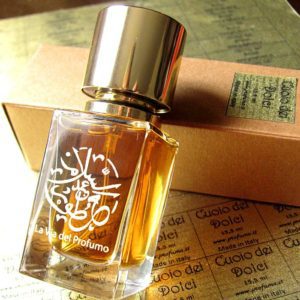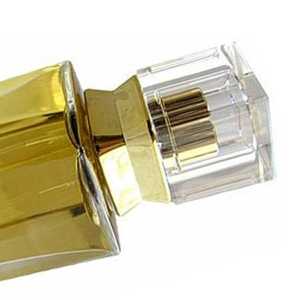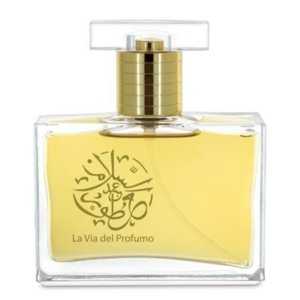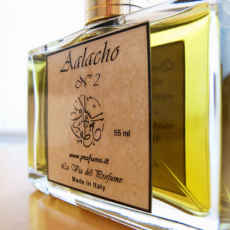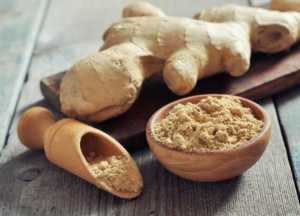Table of Contents
-
History of ginger essential oil
-
Ginger essential oil uses
-
Benefits of ginger essential oil
-
Benefits of ginger oil in aromatherapy
-
Benefits of ginger oil in medicines
-
Benefits of ginger oil in topical applications
-
How to use ginger essential oil
-
How to use ginger essential oil in aromatherapy
-
How to use ginger essential oil in medicines
-
How to use ginger essential oil in topical applications
-
Precautions
History of Ginger Essential Oil
Ginger, scientifically known as Zingiber officinale, has been used in many traditional medicines especially in Asian and African countries for thousands of years. The word ginger came from the Greek term “zingiberis” which means “horn-shaped”.
Ginger essential oil is derived from the rhizome of the herb and used in several health conditions including fevers, colds, nausea, arthritic pain, inflammation, respiratory issues, mental stress, and anxiety.
Ginger oil is known as “the oil of empowerment” for its significant actions on improving confidence and soothing emotional issues like sadness, nervousness, and lack of inspiration.
Ginger Essential Oil Uses
Ginger essential oil is typically extracted by steam distillation of ginger rhizomes. It’s described as warm, strong, and spicy and widely used in medicines, aromatherapy, skin and hair conditions.
Ginger or ginger essential oil is believed to:
- Ease stomach upset, nausea, muscle, and joint pain
- Improve skin elasticity and tone
- Have anti-inflammatory and anti-septic properties
- Exhibit digestive, laxative, and anti-spasmodic actions
- Remove mucus from respiratory airways and reduce congestion and irritation
- Reduce symptoms of flu-associated with fever and colds
- Increase libido by arousing confidence, calmness, and sensuality
- Reduce emotional difficulties such as anxiety, stress, sadness, fatigue and promote enthusiasm
- Improve circulation of blood and stimulate the growth of healthier hair and skin
- Remove toxins from the body and help to improve overall functionality
Benefits of Ginger Essential Oil
The ginger essential oil has several health-beneficial components and each component has separate beneficial effects on the human body and mind. Major components of ginger oil include Zingiberene, Camphene, Pinene, Phellandrene, Geranial, Sequiphellandrene, Bisabolene, and curcumene.
Some health benefits of each component are as follows –
- Zingiberene – the fragrance ingredient of Zingiberene is mainly responsible for the characteristic scents of ginger. It showed significant anti-oxidant, anti-viral, and antiseptic actions in many conditions.
- Camphene – Camphene showed great soothing effects on multiple pain issues. It has powerful anti-inflammatory and anti-oxidant properties.
- Pinene – it’s a famous bronchodilator. Apart from expectorant properties, it has also antiseptic and anti-inflammatory actions.
- Phellandrene – it has a pleasant peppery, minty, and slightly citrusy odor. It has powerful antibacterial, decongestant, and anti-viral properties.
- Geranial – it has potent anti-oxidant and insecticidal actions. It’s a fragrance ingredient that shows a rose-like scent.
- Sequiphellandrene – it has anti-spasmodic, carminative, and anti-viral actions.
- Bisabolene – it has anti-allergic and anti-inflammatory properties. Its fragrance component exudes a fruity, woody, and warm scent of “oriental” aromas.
- Curcumene – Curcumene has significant analgesic and hypotensive actions. It shows anti-inflammatory and anti-oxidant effects.
Ginger oil is very popular for its diverse therapeutic benefits. Here’re some benefits of ginger oil found in different therapeutic applications.
Benefits of ginger oil in aromatherapy
Ginger oil is globally known for its warming and stimulating actions which can improve concentration while reducing and soothing the feelings of sadness, stress, lethargy, anxiety, fatigue, dizziness, and agitation.
Benefits of ginger oil in medicines
Ginger oil’s digestive and detoxifying action enhance the digestion process and help to eliminate toxins from the body. Besides, it alleviates discomforts associated with the bowel and stomach, including dyspepsia, diarrhea, stomach ache, flatulence, spasms, and colics.
Ginger oil helps to increase appetite as well as gain weight. Its expectorant actions help to eradicate mucus from the respiratory airways and significantly reduce symptoms associated with respiratory ailments including asthma, flu, cold, cough, breathlessness, and bronchitis.
Ginger oil has tremendous analgesic actions. While applying on the muscles, its analgesic actions help to reduce and soothe the pain as well as inflammation. Therefore, ginger oil helps to reduce migraines, headaches, lumbago, arthritis, and uterine contractions which are typically known as menstrual cramps.
Benefits of ginger oil in topical applications
The essential oil derived from ginger roots may help eradicate bacteria and reduce redness associated with acne, while used cosmetically. Its anti-oxidant actions are popularly known to have a protective action on the skin, inhibiting the symptoms of aging and skin damage, such as fine lines and wrinkles.
Ginger essential oil is an ideal cosmetic ingredient in revitalizing moisturizers that help to restore the radiance and color of a dull complexion.
Ginger oil is also used in hair, its rich mineral constituents contribute to scalp health. Anti-inflammatory, anti-fungal, and anti-septic actions of the ginger essential oil help to soothe itchiness and dryness of the scalp especially in dandruff conditions. Ginger oil helps to improve blood circulation and promote healthier hair growth.
How to Use Ginger Essential Oil
Ginger essential oil is used in different ways in different therapeutic modalities. Here’re are some ways for instances.
How to use ginger essential oil in aromatherapy
You can diffuse 2-3 drops of ginger essential oil in a diffuser of your personal choice to improve your negative emotions. This process is also helpful to increase libido and sensuality. It’s also beneficial for people who have insomnia for improving sleep quality. This procedure is also recommended to inspire hopeful and positive feelings and thus for promoting a strongly balanced mindset.
A combination of essential oils can be made by mixing 3 drops of ginger oil, 2 drops of orange essential oil, and 2 drops of ylang-ylang essential oil that’s helpful for reducing sadness, anxiety, and fatigue.
For enhancing the feelings of confidence, a well-known blend can be made by combining 3 drops of ginger oil, 2 drops of patchouli oil, and 2 drops of bergamot oil.
A combination blend of 2 drops of each of ginger, orange, and geranium essential oils, is very beneficial for uplifting the mind.
How to use ginger essential oil in medicines
For easing irritation and congestion of the respiratory tract, make an essential oil mixture combining 2 drops each of ginger oil, tea tree oil, sage oil, and eucalyptus oil. This essential oil mixture may help you reduce mucus and inflammation of the respiratory tract. This blend also helps to manage stress, balance hormones, and alleviate allergic symptoms.
For treating nausea and stomach upset, 3 drops of ginger essential oil can be mixed with 2 drops of peppermint oil and 3 drops of grapefruit essential oil.
For soothing sore muscles, body aches, headaches, and uterine cramps, simply add 2-4 drops of ginger oil in your bathtub filled with comfortable warm water. Dive in this ginger oil-infused bathtub until the water cools down. This process also helps to alleviate symptoms of inflammation and improve the overall functionality of the digestive system.
For making massage oil, mix 5 drops ginger oil, 5 drops of orange oil, and 5 drops of any carrier oil like jojoba oil. Or you can make a massage oil blend by mixing 4 drops of ginger oil, 2 drops of eucalyptus oil, 4 drops of rosemary oil, and 4 teaspoons of carrier oil as per your choice. These massage blends help to soothe aches and improve the feelings of relaxation.
How to use ginger essential oil in topical applications
To make a nourishing and toning face mask, simply combine 5 drops of ginger oil with 2 tablespoons of organic raw honey and 1 teaspoon lemon juice. Refrigerate the mix for at least 30 minutes. Apply this mixture as a mask to the face and leave it for 30 minutes. Then rinse the application with cool water. This mask helps to soften, illuminate, and rejuvenate the skin.
For naturally cleaning and soothing the dandruff-affected scalp, simply add 2 drops of ginger essential oil to your regular shampoo.
For making an anti-dandruff natural hair mask, mix 10 drops ginger oil, 1 teaspoon lemon juice, 5 drops of extra virgin olive oil (EVOO) as a carrier oil. Massage this anti-bacterial and anti-septic hair mix into the scalp. Rinse this mix after 30 minutes with a mild shampoo. This process can be repeated twice or thrice a week to control an itchy and dry scalp and to stimulate healthy hair growth.
Precautions
As per the U.S. FDA (Food and Drug Administration) – ginger oil is considered generally safe with a few reported adverse effects. Some people may experience skin reactions, however, a small skin test with ginger oil is recommended before applying thoroughly. Pregnant and nursing women should seek medical advice from a licensed physician before using ginger essential oil.
Disclaimer
The information and advice in this guide aren’t intended to diagnose, treat, or cure any disease. It’s strongly recommended to acquire direct supervision of a certified medical practitioner to use any information or advice in this article.



